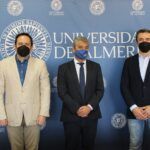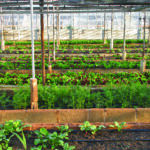Today, the European Parliament, the Council and the Commission celebrate the launch of an annual ‘EU organic day’. The three institutions signed a joint declaration establishing from now on each 23 September as EU organic day. This follows up on the Action Plan for the development of organic production, adopted by the Commission on 25 March 2021, which announced the creation of such a day to raise awareness of organic production.
At the signing and launch ceremony, Commissioner for Agriculture Janusz Wojciechowski said: “Today we celebrate organic production, a sustainable type of agriculture where food production is done in harmony with nature, biodiversity and animal welfare. 23 September is also autumnal equinox, when day and night are equally long, a symbol of balance between agriculture and environment that ideally suits organic production. I am glad that together with the European Parliament, the Council, and key actors of this sector we get to launch this annual EU organic day, a great opportunity to raise awareness of organic production and promote the key role it plays in the transition to sustainable food systems.”
The overall aim of the Action Plan for the development of organic production is to boost substantially the production and consumption of organic products in order to contribute to the achievement of the Farm to Fork and Biodiversity strategies’ targets such as reducing the use of fertilisers, pesticides and anti-microbials. The organic sector needs the right tools to grow, as laid out in the Action Plan. Structured around three axes – boosting consumption, increasing production, and further improving the sustainability of the sector -, 23 actions are put forward to ensure a balanced growth of the sector.
Actions
To boost consumption the Action Plan includes actions such as informing and communicating about organic production, promoting the consumption of organic products, and stimulating a greater use of organics in public canteens through public procurement. Furthermore, to increase organic production, the Common Agricultural Policy (CAP) will remain a key tool for supporting the conversion to organic farming. It will be complemented by, for instance, information events and networking for sharing best practices and certification for groups of farmers rather than for individuals. Finally, to improve the sustainability of organic farming, the Commission will dedicate at least 30% of the budget for research and innovation in the field of agriculture, forestry and rural areas to topics specific to or relevant for the organic sector.
Background
Organic production comes with a number of important benefits: organic fields have around 30% more biodiversity, organically farmed animals enjoy a higher degree of animal welfare and take less antibiotics, organic farmers have higher incomes and are more resilient, and consumers know exactly what they are getting thanks to the EU organic logo.







Leave a Reply